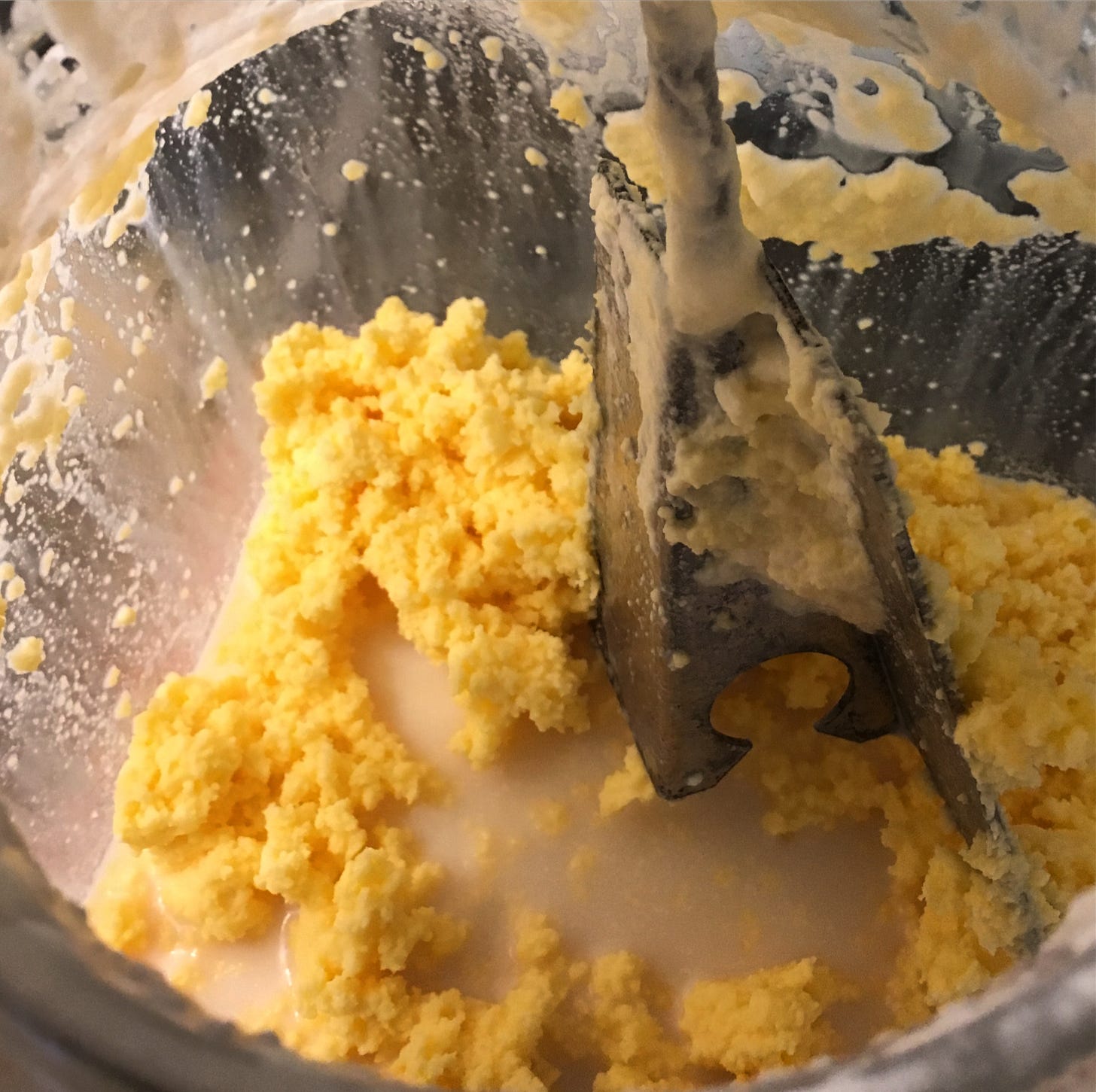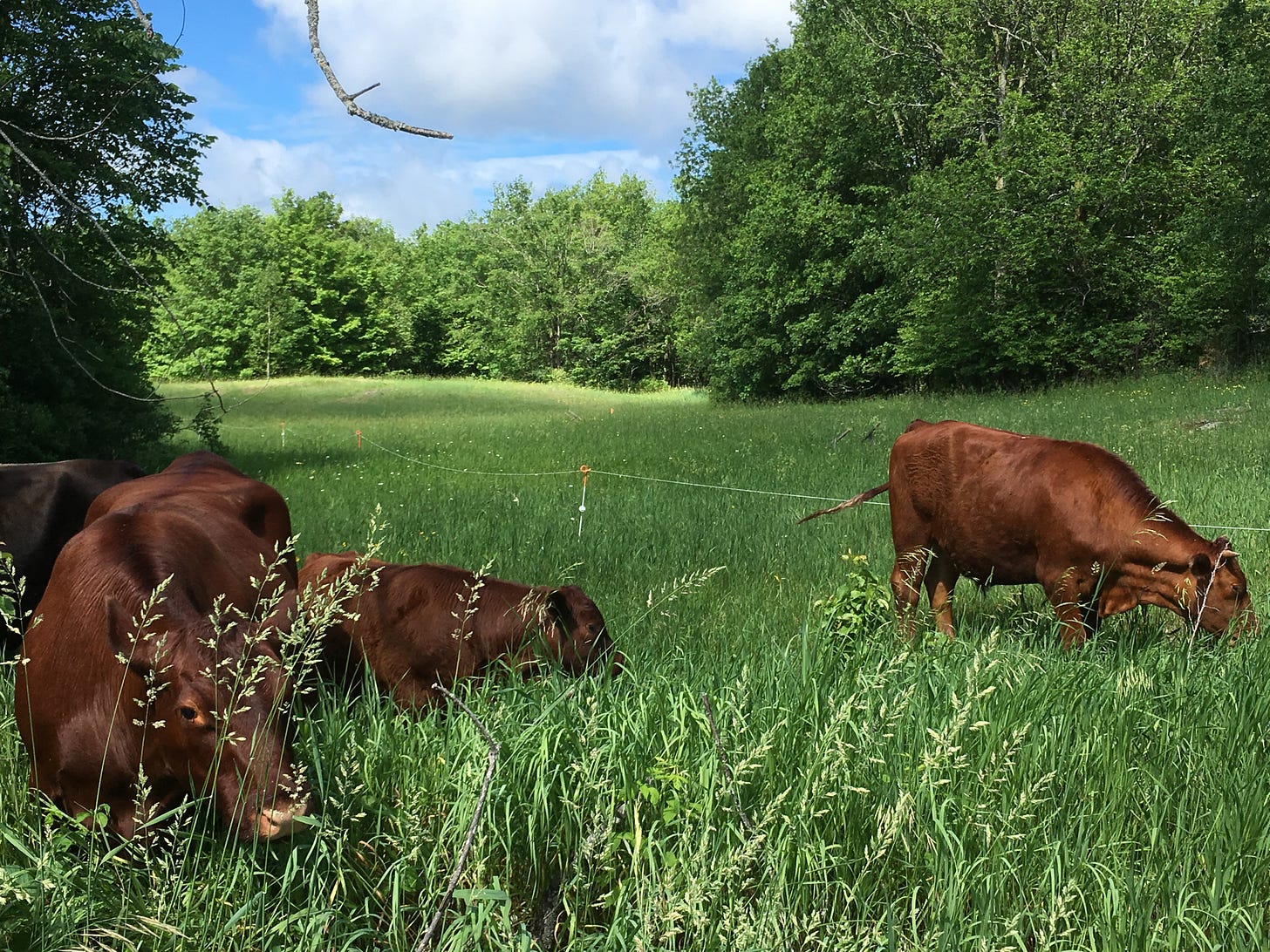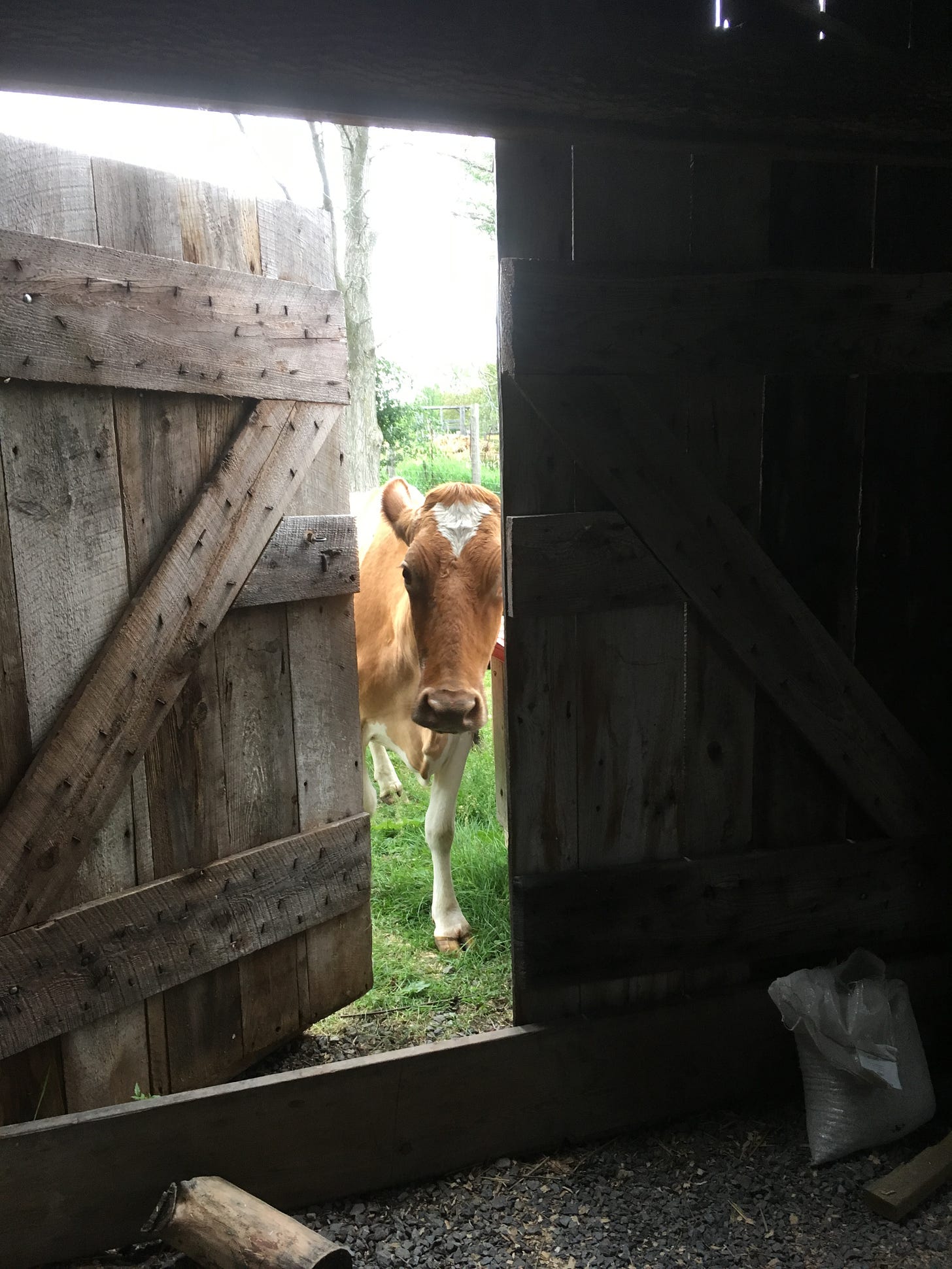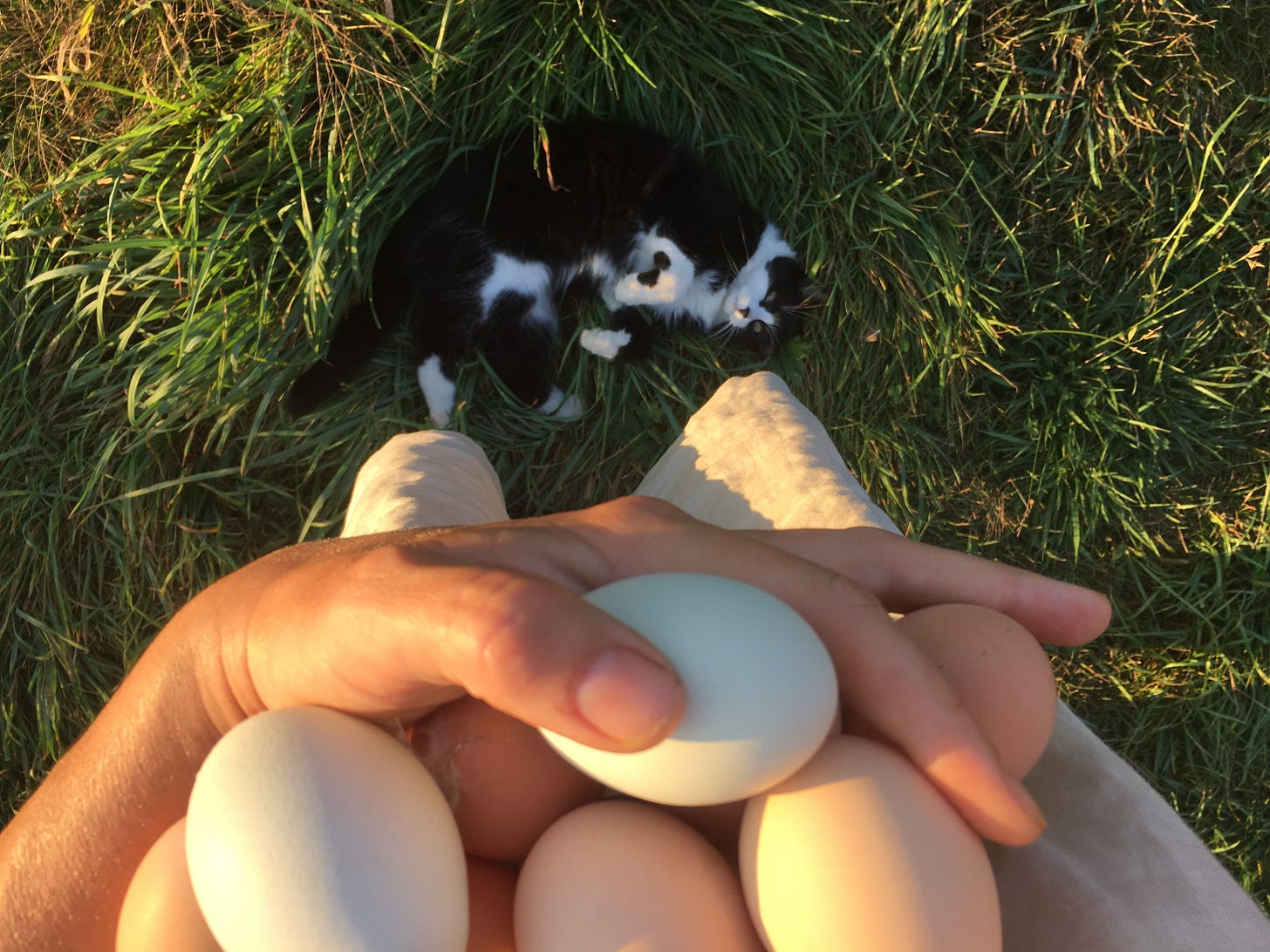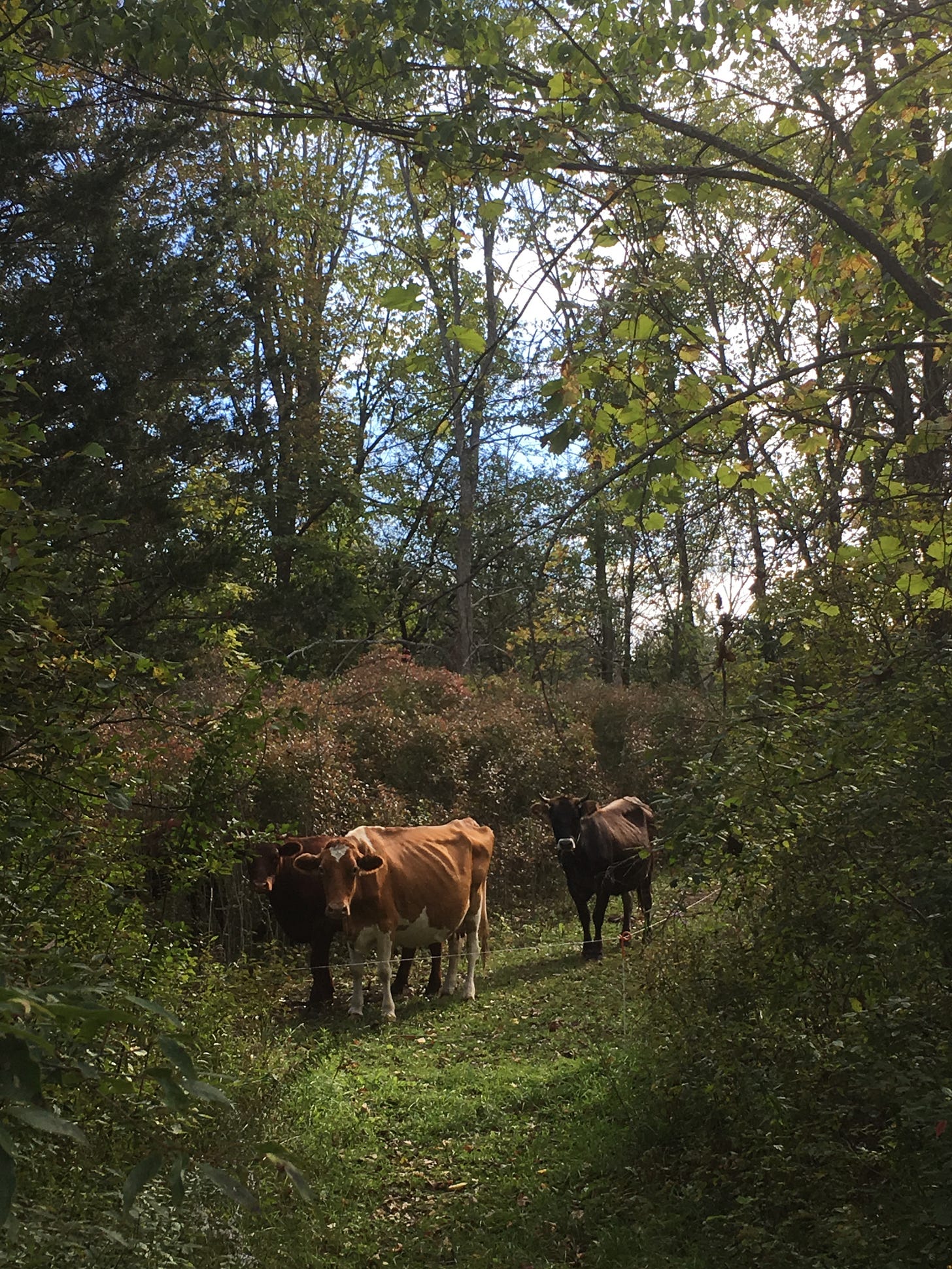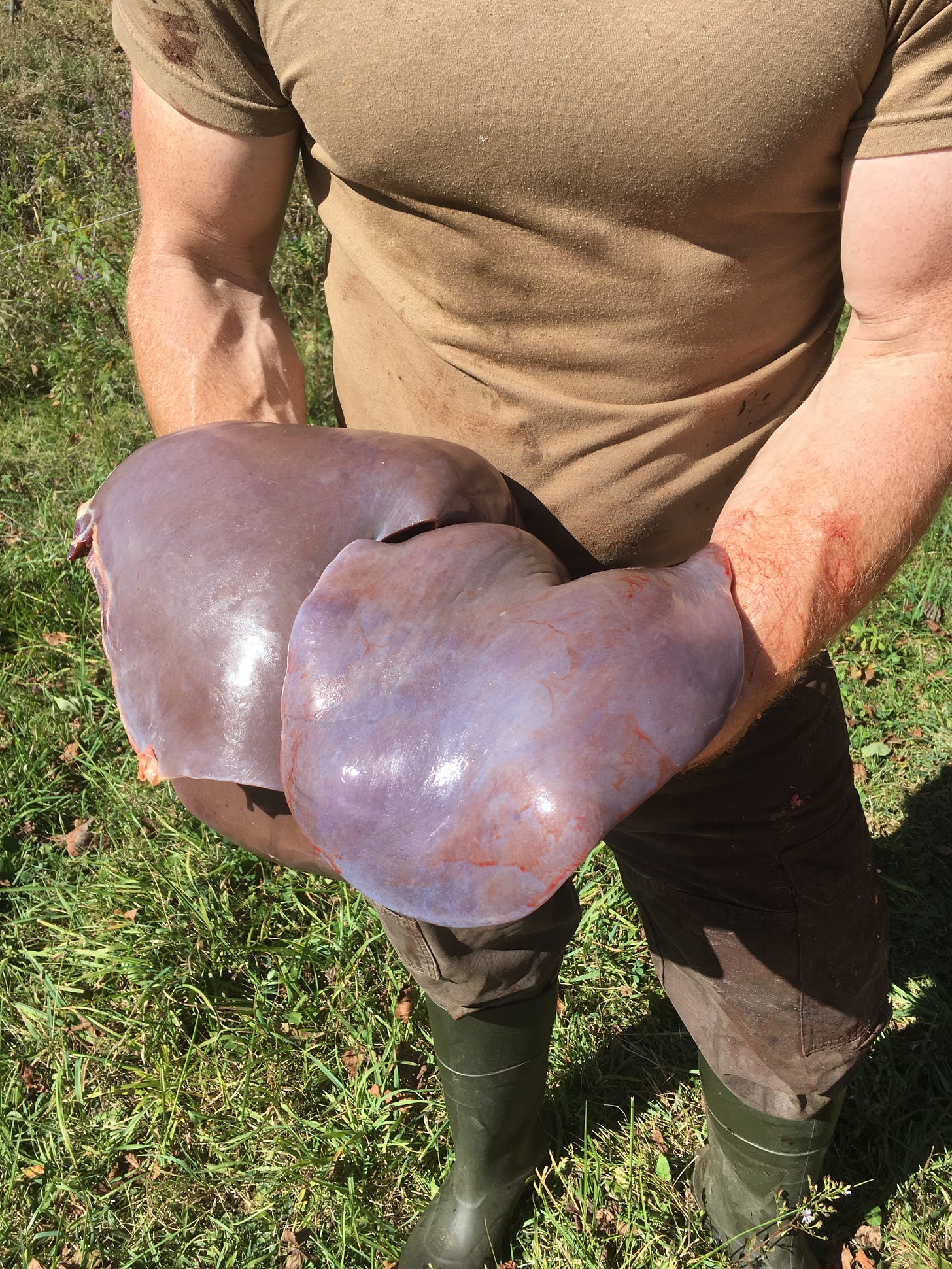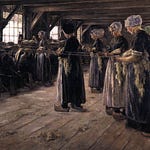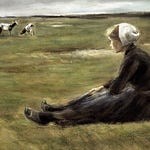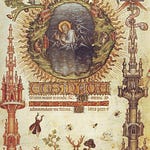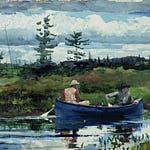It wasn’t by chance that, many years ago now, we came to find ourselves owning a 200 acre farm with dilapidated buildings and a house built of pressboard and melamine. We had been looking for a farm of our own for close to five years by that time. Our list of all the things our dream farm would have dwindled with each prospective property we viewed. The reality of our budget and what was on offer brought us from the dreamy to the strictly necessary. We needed good water and good, mixed land. Beyond that, we were flexible.
But I want to back up a bit, to the time before we bought our first farm. We had been buying our meat and produce from farmers for years. We had our own plot at a local community garden where we grew and processed our own delights. I attended workshops on food preservation and raided our library shelves on all things farming and food. So when we started searching for our own little piece of rural heaven, the desire to grow and raise our own food was absolutely imperative to us. Having moved around the country so much with my husband’s job, we were in the unique position of having been able to meet with all sorts of farmers doing all sorts of things. Time working and volunteering on farms taught me that no two are alike. I saw many things over those years that steered me towards how I thought things should be done and I wanted to be the one to do them.
During that time, the time of preparation for our farm to come, we were also paying attention to conversations around the direction of the world. There was no social media at that time (if there was we weren’t part of it), but there were books, conferences, and newsletters and, in retrospect, I can see that even mainstream radio (like our old national broadcaster, pre-woke) used to carry dissenting opinions and viewpoints. I suppose we were already quite inclined to question authority even back then. It seems a weird thing to say given we both served in the military, but in those days the military was composed of all sorts of people that came from all sorts of demographics. Many of them the salt of the earth and the ones close to the ground. We would accept the authority of a leader close to us but beyond that, well there were questions. Anyway, the point is that even back then my husband and I knew how wobbly the systems were around us. We had friends that were part of the “secret squirrels”. What we were being told and shown about our world was not a true representation about what was happening.
At that time I was aware of the threats against our food supply. Even then, ranchers were being surveilled and inspected for infractions like butchering their own meat or having more than the allowed 100 or 300 chickens (depending on what province you were on). There were stories of people being prosecuted for collecting rain water because the state decided they owned it (I hear these types of laws have spread since then). I brought our young daughters to the courthouse with me so we could watch as our justice system went after our raw milk farmer with the full weight of the law. We heard about things like “peak oil”. We read stories from people that were living lives separate from ones that the dependency systems require of us all. I had long left the medical system after two very serious misdiagnosis with our children. My first born had a serious vaccine reaction. That’s enough to get any parent questioning. Later I was told she had an exceedingly rare genetic mutation by one of Canada’s top geneticists. I will never forget the words, “If she was a boy, there is 100% chance she would die. As it is, she will likely be blind and mentally retarded within a year or two.” She didn’t have what they said she did. We found that out after close to a year of ongoing tests and “care” with the specialists we were assigned to. Years later, it was another chid and another misdiagnosis. Things like that have a way of opening your eyes about “experts”.
On one hand, we saw governments, institutions, and corporations growing exponentially in our society and on the other, the possibility of another way. We were meeting people that were taking on the full weight of responsibility for their lives. We wanted that for ourselves.
We spoke to our farmer friends about the direction our food supply was trending. We spoke to our elderly friends about the things that they could sniff out when others seemed oblivious. We read and attended farming conferences. All of our free time was spent in nature. We would go on long hikes with our kids that ended in picnics. I took courses on homeopathy for the family. I went on herbal walks with local wild women who showed me what to pick and when. We used wild medicines, food, sunshine, and even the cold to keep us well instead of what was on offer through allopathic medicine. We would explore the wild spaces around us, go to forests and lakes. Every time we left the city we would exhale. We lingered when we visited our farmers and we volunteered to shovel out barns and any other task we could be useful for. We learned the plants of our region by spending time foraging and observing. We hunted to fill our freezers. We read every book about gardening and farming, soil, permaculture, and biodynamics that we could get our hands on. The chasm between how we wanted to live and how we were living shrunk, even while we were still living in the suburbs.
In other words, like most everything in life, long before our dream came close enough to touch, we already intimately knew it. Everything we were aligning our lives with, we were breathing life into. That’s important. We weren’t terrified the end of the world was nigh and we had to start accumulating everything we needed to survive for a decade. We knew how we wanted to live and we did the things we needed to, the things we could do, to start creating that world.
Our first years of farming included selling our grass fed beef, organic and pastured pork, and eggs. We live on our second farm now, a farm more suited to how we currently live, homesteading for us over selling to others. We’ve constantly raised and grown about 85-90% of the food we live off of. This year, we brought that number to 100% .
The last of our entangled systems, our mortgage, has been our prime focus these last few years. We didn’t inherit wealth or land. We had to buy our first and second farm with a mortgage. But debt is the most insidious type of dependancy and it’s been our aggressive mission to pay that off as quickly as possible. We have consistently increased payments and put any spare money onto our mortgage. We will be free of that ball and chain in just over a year. If there is anything I can suggest to young people starting out, it’s this: avoid debt like the plague. It is there to entrap you, to limit all future possibilities in your world. We were very vocal about debt with our children as they grew up. We taught them about how the debt system works and how it would plague them, limit them throughout their lives. When they were offered credit cards in their first year of post secondary, they opted for secured $500 cards instead. They bought cars by saving up the cash for them. They hustled and took on side jobs, some above, some under the table. There is freedom where there isn’t debt.
We knew that we would have to get a mortgage and that we didn’t want to entrap ourselves in a life of endless payments. There are other ways around this and we know of people that were able to work out scenarios with farmers to trade their labour for land or to come to agreements where they could lease land for 100 years. There are all sorts of possibilities people can create when they leave banks out of the equation. For us, we had three children and we were coming from a place of military house rentals and continuous moving. We needed our own home and we knew what that meant so our only option was finding something within a budget that would allow us to actually crawl out from under that debt load within a reasonable amount of time. What’s the point of buying something to disentangle from the systems of dependance if you’re just continuously paying for that illusion?
When we did find that good water, good land, poopy house and outbuildings I referred to earlier, it came with the price tag of $310,000. I don’t like it when people don’t give dollars when they’re talking about dollars, so for those of you that feel the same, there it is. To find a place within our budget we had to be willing to live in a certain area. That same size of land a short drive down the road was exponentially more expensive. We wouldn’t have been able to buy anything close to what we were looking for in many other provinces.
We had to put 20% down because the bank didn’t link any value to the land. Isn’t that something? We had saved most of that down payment and we had a friend that loaned us a portion beyond our savings with the agreement that we had a year to return the payment. We did return that payment with interest and from there on out, we aggressively tackled that mortgage while we used our energy and muscles to tackle everything else. We gutted the house and made it quite adorable if I do say so myself. We improved the farm buildings, put up fencing, and bought used farm equipment to cut our own hay.
That old adage of needing to ‘spend money to save money’ can certainly feel true on a farm. Ever more applicable is that there is no such thing as free food on a farm, not even in hunting. Supplies, equipment, and tools are a necessary part of any food harvesting endeavour. The trick is in dwindling your list down to what is truly necessary and being comfortable with used stuff. From kid’s clothes to hunting equipment to farming tools and machinery, buying used allowed us to participate without going into debt. And, like I said, debt is the opposite of being prepared. Being prepared for what comes means the freedom and flexibility to adapt and make changes. Debt is quite literally being chained to a system.
Homesteading with the goal of producing all of your own food is tough. To do it with an eye to the future and being prepared for what comes, not just the next year, is indeed a lot of work. But like everything, it’s perspective that fuels the energy around that challenge. There are different types of people doing different types of things to make themselves feel more secure in a time when evidence dictates that our supply systems are changing, intentional or not. There are invested interests that want to see us living and eating quite differently than we are today. Their ideas around health and relationships are a perversion of the gifts we have been given by our Creator. To them, life is not sacred or precious, it is a thing to be moulded into their version of utopia. In the world they hope to create we put on goggles to participate in a fake universe where we can pretend to be the things we aren’t. We eat packaged, ready made meals that are nutrient deplete and make us sicker and fatter. We accept into our bodies anything and everything they tell us to. We buy what they say we can. Nature is something to admire in pictures but not participate in. As if we could ever be separate. If we don’t want to participate in this version of the world, what happens to us?
Ultimately, I don’t think those maniacs with the big dollars are going to be successful in their plan. I have great faith in my fellow human, both in their strength and their tenacity, but mostly in their capacity to love. But we prepare nonetheless. Not because we are living in fear, but because taking responsibility for ourselves and our future, in the limited way anyone can take responsibility for their future, is found in the actions of today. Whether it’s eating healthy today, exercising today, spending time with my loves, or tending my garden, how I spend today all contributes to my future self. We feel the same about preparing for a time when our systems fail. What that looks like, I do not know, but for us, there’s a few areas that we have been concentrating on over the years to build capacity and resilience into our lives.
There was a time, before we were convinced of the ease and convenience of industrialization, where everyone had some level of responsibility and autonomy over their food, energy, and health. We forget that up until a few short decades ago, living meant carving out a living not applying for a government job. Jobs, as in working for someone else, seemed nonsensical. Why build the dreams for others when you have your own? Even if there was dependancy, it was on our communities and families. Everyone contributed in some way. Everyone needed someone in some way. That’s the interconnectedness of a thriving society.
Then “progress” rolled in and said, “We can give you everything you need for cheap and you don’t owe us anything in return. Just pay for it. Use your money to free you from the drudgery of work.” And so we did. Women were liberated from the home. Men left the fields and moved to the cities. The ways of being and working on the land were wiped out in the blink of an eye. The great trap was set.
Today we are wholly and totally dependant on the faceless entities that allow us to live in our houses. Some company somewhere pumps energy into our homes so we can be warm or cold. We turn on a stove and cook a meal grown and raised by people we will never see or machines we will never understand. We work for other people’s dreams so we can have the money we need to buy that food or the clothes we need to go to work. We ride in cars that only work if the oil or the electricity is turned on by the same system controllers. Warmongers hunt for conflict at every turn. Profiteers fill our bodies and our airwaves with all manner of untested poisons. Governments long ago forgot the people in the pursuit of their own individual ambitions. Institutions of learning stopped teaching children how to think and decided feeding them what to think was a good enough proxy. Now, the systems we are convinced are necessary for us to live are turning on the people for voicing dissent. Banks and payment processors are dropping customers for the sin of wrong-think. And now, the coup de grâce, the central bank digital currencies are being tested in many parts of the world all while the mainstream media bangs the drum of their salvation for all mankind. Everything is tentative, nothing is certain.
Put all those things together and it can start looking bleak. I know. I get it. Even writing the paragraph made me feel dark and stormy inside. But while those things are true, they are not the entirety of truth. They may be true, but they are not reality. In other words, it is by living with and within truth that we can face those ugly things with more fortitude. I live close to the earth. I live close to my great loves. I spend time every day in my home in nature, even if that was, at one time, just sitting on the grass with my back against a tree while doing homework with my kids. I spend time with my God. In all of these things, the resetting and reminding of what is true. What is real and robust. The world, as Klaus or Gates or any of those wayward billionaires see it is a fiction. If I buy into that, if I feed that monster with my fear, I am participating in its creation as surely as they are.
What motivates me to prepare for the crumbling of what is here is not fear. It is the confidence that beauty and love will prevail. How it will prevail, when it will prevail, none of us know. For years, friends and I have spoken about how the only way humanity would change is if the systems that have propped us up would crumble and we had to create new ways of being on this earth. Well, it seemed a little easier to say that then when we thought we would outlive those days. It looks like many of us will be here for that show after all. That’s not an accident and I believe we all have a role to play.
I have this thing that I do when I’m feeling afraid or worried about something. It’s the “and then what” question. It goes like this:
Oh my god they’re going to bring in these digital currencies and control our money and tell me I can only buy bugs and not let me leave my house if I don’t have my good social credit because I called Trudeau a donut and someone reported me and…
And then what?
I won’t be able to leave my house. They will tell me what to do.
And then what?
Yeah. Well, I’m not going to roll over and wilt. I’ll figure out other ways of living. The pioneers never used to leave their houses every few days, they didn’t need to. But what if they do start taking back farms and they tell me I can’t live here anymore?
And then what?
I wouldn’t leave.
And then what?
They’d try to remove me.
And then what?
I wouldn’t go.
Keep going here. Don’t stop if it gets scarier. In every scenario, when you play it out until the very end, you come to your finality. You drill into the deepest fears of being rejected, homeless, penniless, separated, and finally dead. Every fear or worry can be drilled down to one of two things: being alone and/or death. Both of which are fictions. Death is not an end and we are never alone. The only way to lessen the intensity of those dark places in ourselves is to enter them. Running from them only intensifies what lives there. Go in. Stay in there for a good while. Visit often. Light a candle or two. Look around. Bring some warmth and love into those dark crevices. The more you can interweave your shadow into your life, the less power anyone or anything has over you.
The whole covid debacle ran on the fuel of our collective fear of death or being ostracized. Even in the world of “prepping” we see people buying hazmat suits or nuclear fallout structures. At what point do we say, “Ya know, if there’s going to be a nuclear bomb, it might just be better to die with everyone else than be the lone two or three people roaming the earth or living like weasels for a few painful months.”
Those doomsday scenarios are necessary to think about, if only to get to that place of acceptance of the finality of such things, but they do us and our world no good to stew in. Take action. Prepare. Control the things you can. Like I said, we are hopeful and genuinely believe that we are going to come out of this time into a new era of our evolution as a species. But that doesn’t mean burrowing our heads into the sand and pretending all is as it appears. We have been shown and it’s up to us to see.
All around us, there are gifts from the last three years. People are starting to see that all is not as simple as they thought. Things are happening. Unplug from the static and you can feel it all around you. That’s where we need to spend our time and our energy in being co-conspirators in this unfolding new story of humanity.
Just as in natural world, for we are also the natural world despite the illusion of modern day life, new life requires the decomposing of the old. We must first live through that decomposition. That’s how I see this time. The decomposing of the fallen and the withering. But look around. All around us, as the towers heave and tumble and the smoke fills our eyes, there are things happening. Go to the earth, get close to the ground. See the blooms pushing up through the ashes. Listen for the birdsong. There is life, abundant and joyous all around us.
In order to carry us through this time of transition, my husband and I have considered all facets of our lives and how dependant we are on the systems around us. We’ve considered the costs of investment today with the benefit of reward later. Our approach, mostly, has been to use the wisdom of our ancestors as a guide instead of the technologies that are on offer today. We’re not luddites, but we have noticed that many of the technologies of today, especially around energy systems, require a dependency of their own sort. We make decisions both on how we live today and how our lives would change in the future should those systems we are propped up by today collapse tomorrow.
In our goal to be free of dependancy on systems, we’ve considered everything from our food, medical supplies, real physical books, tools, ammunition, lighting, fire, medical supplies, energy, medicines, food preservation and storage, water, and clothing. We’ve only just now started really digging into money, but we have long considered goods for bartering. There are many ways to tackle these issues. We feel secure in our approach. We do what we can and then we let go of the things we have no control over. The stress in our lives comes from the things we can’t control or the things we can control but don’t. We want to spend our lives living in today, not fretting over tomorrow. So we do what we can in the areas we can and we live with gratitude for the simple pleasures we build into our now. We also know tomorrow is going to be okay.
In part two of this essay I will get into the nuts and bolts of how we’ve tackled each of those aforementioned categories and why we have chosen to set ourselves up to comfortably return to the energy and food production of yesteryear over investing huge chunks of money in off grid systems that prop up the conveniences of today. Nothing fancy, just us and common sense for what works to keep us living simply today with confidence that all will be well.
Until then…



